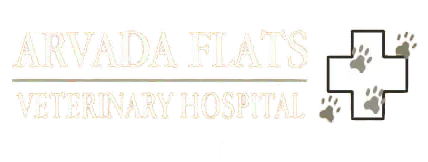Home dental care for your cat or dog has the same goal as home dental care for yourself, to remove dental plaque. Plaque is the sticky, whitish film with the bad taste and offensive odor that accumulates inside the mouth. Plaque is about 85% bacteria and will mineralize to form tartar. Plaque accumulation causes infection in the gums (gingivitis) and of the bone around the teeth (periodontitis). Your cat or dog depends on you to provide home dental care and regular professional examinations. Use one or more of the following methods, as recommended by your veterinarian.
Daily Tooth Brushing
This is the very best home dental care you can provide for your pet. Tooth brushing removes plaque above and below the gum line. Daily removal of plaque slows the accumulation of tartar and helps prevent gum and bone infections. Use a soft toothbrush and cat or dog toothpaste. The ProCleanâ„¢ toothbrush has end-rounded, very thin bristles that create a flexible, gentle brush and come is a small size to fit your pet's mouth and teeth. For small and medium sized dogs and cats, an electric toothbrush called Rotodentâ„¢ is very effective. Cat and dog toothpastes are made to be swallowed, unlike toothpastes for people. This is important because your pet cannot "rinse and spit". Cat toothpastes come in flavors such as chicken or seafood, and dog toothpaste comes in flavors that appeal to them, such as peanut butter, poultry, and malt.
Take your time, be patient, and be generous with praise and rewards. From your pet's perspective, tooth brushing means attention from you, tasty toothpaste on a soft brush, and a reward afterwards. Your veterinarian or veterinary dental technician can show you how to brush your pet's teeth.
Antibacterial Rinse
An antibacterial rinse made for cats and dogs is another option. When brushing is not possible, daily use of CET Oral Hygiene Rinseâ„¢ will help slow accumulation of dental plaque. For some pets, CET Rinse should be used instead of toothpaste. The malt-flavored rinse is usually well accepted. Ask your veterinarian or veterinary dental technician to demonstrate how to apply the rinse.
Chew Toys
Chew toys partially remove plaque and tartar about the gum line, exercise the jaw muscles, and satisfy your cat or dog's natural urge to chew. Different pets have different chewing behaviors, so choose toys based on your pet's chewing activity. Your veterinarian can help you find the right type and size of toy. Any chew toy can lodge in the throat or stomach and cause problems, so supervise your pet when he or she has a chew toy. The CET Forte Cat Chewâ„¢ is an abrasive, resilient chew treat for cats that removes a significant amount of plaque. The Cat Chew is treated with enzymes that generate antibacterial activity. In order of increasing durability in dog's teeth, toys worth trying include Gumabonesâ„¢, Rhinosâ„¢, and Plaque Attackersâ„¢. Many dogs also enjoy crunchy treats such as rice cakes and carrots. Never give your dog hard chew toys such as cow hooves or bones. Hard chew toys will break your dog's teeth.
Dental Checkups
Home dental care and regular professional examinations help protect your cat or dog's health. Most cats and dogs need a dental exam every six to twelve months. Ask your veterinarian how often your cat or dog needs a dental exam. Even if your pet appears normal, regular professional examinations should be done because cats and dogs can hide severe dental problems.
